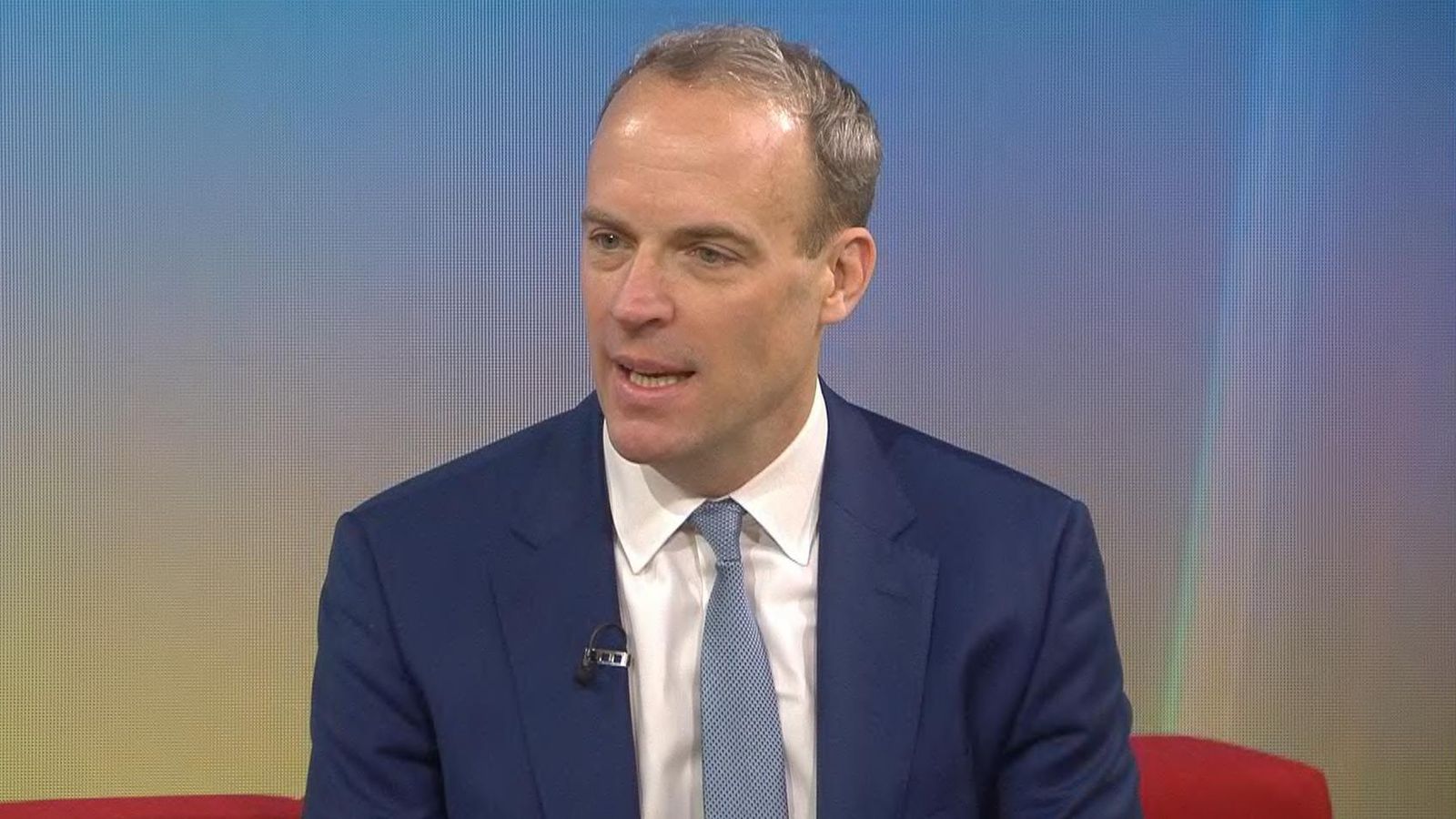Dominic Raab plans to change law to compel ‘spineless criminals’ to attend their sentencing after Thomas Cashman snub

Justice Secretary Dominic Raab has said convicted criminals should be forced to attend their sentencing in court, after Olivia Pratt-Korbel’s murderer Thomas Cashman refused to face his punishment.
New videos of Olivia were released by her family the day after Cashman was sentenced to a minimum of 42 years in prison before parole is considered.
Please use Chrome browser for a more accessible video player
0:26
Olivia Pratt-Korbel’s family released video of murdered nine-year-old
But Cashman did not show up to face Manchester Crown Court and Olivia’s family when his punishment was handed out on Monday.
“Spineless criminals like Cashman who hide from their sentencing prolong the suffering of victims and their families,” Raab wrote on Twitter.
“As I have already made clear, I plan to change the law to compel offenders to face up to their actions, so victims can see the justice they deserve being served.”
Mr Raab first committed to changing the law after the killer of Zara Aleena refused to attend his sentencing in December. Jordan McSweeney was jailed for life with a minimum term of 38 years.
The family of the murdered law graduate held talks with Mr Raab in the wake of McSweeney’s sentencing and pushed for change to prevent others from suffering as they had.
McSweeney murdered 35-year-old Ms Aleena as she walked home in Ilford, east London, on 26 June last year.
Read more:
Tougher sentences plan
Appearing on BBC Breakfast, Ms Aleena’s aunt Farah Naz said criminals should be forced to spend longer behind bars if they refuse to appear in court to hear their fate.
When it was suggested that the plan was impractical, Ms Naz claimed there were ways to implement it that do not involve forcing unwilling defendants into the dock.
She added: “Surely the judgment is part of the punishment… we need to see that the process will deter further crime and how can the process feel like a punishment if the convict actually exercises their bit of power?
“It’s the last bit of power that needs to be taken away, certainly in our eyes.
“I think there are other ways to make the convict come to face their judgment and that would be to add time to their sentencing or there can be other ways.
“Otherwise we don’t have people deterred from committing crimes, if they’re just moving from cell to cell there’s no sense of punishment.”
Please use Chrome browser for a more accessible video player
2:13
Farah Naz: ‘Probation have blood on their hands’
She described McSweeney refusing to attend his sentencing as a “further slap in the face” and “another attack from him”.
Her family had “anticipated the moment” they would be able to give their victim impact statement and look McSweeney in the eyes, and that it had been an “incomplete process” because he refused to turn up.
She was “really sad” that Olivia’s family were also not able to see Cashman, who had “destroyed their lives”, being sentenced.
Justice Secretary Dominic Raab told Sky News last month that he was “definitely” looking into changing the law.
He said the change was needed as both a matter of “respect and recognition of the bereaved of the victims” and for the “principle of British justice”.